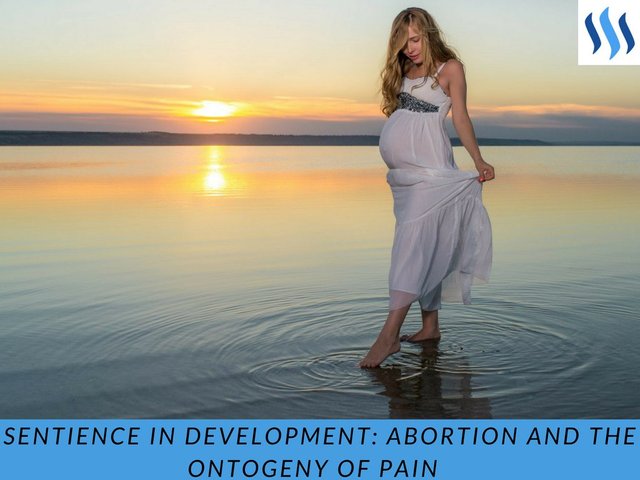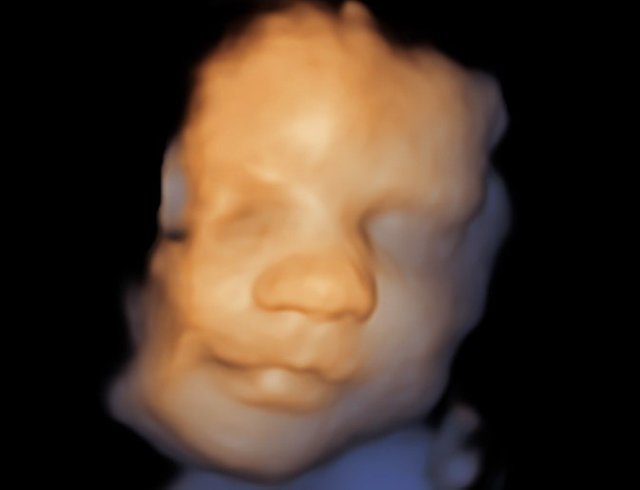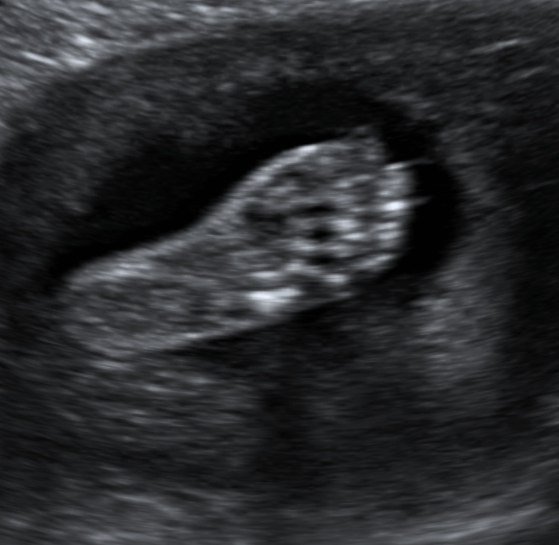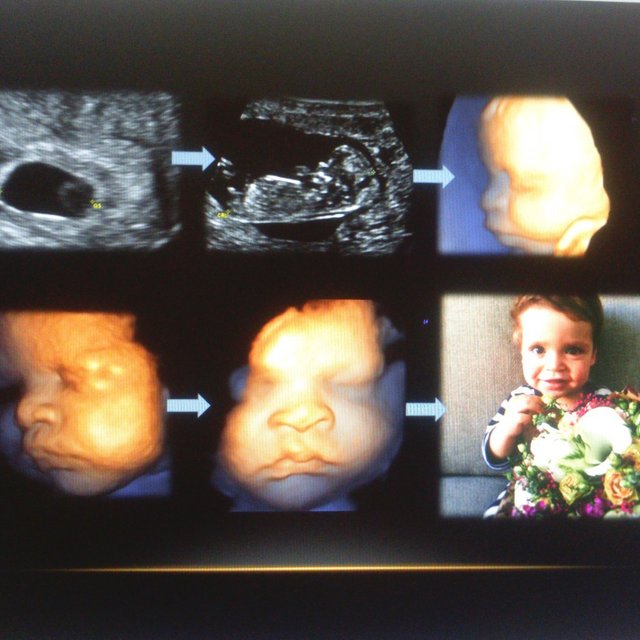Sentience in Development: Abortion and the Ontogeny of Pain

I've been thinking a lot about the role of various features of individuals in facilitating ethical obligations, especially with regard to abortion. In my previous work, I tried to develop some of the grounding for my ethical theories with regards to context sensitivity particularly with an eye towards the abortion issue. I want to expand on a single line of argument that emerges out of that.

an ultrasound picture

the same baby after birth
My argument goes like this:
SA1: Acute harm is caused if the structural integrity of an organism is disrupted in an irreversible way which permanently inhibits the functions of the organism.
SA2: Morally impermissible harm occurs if an organism is or would become aware of acute harm caused in such a way that it causes psychological distress.

SA3: There are forms of acute harm of which the individual would never become aware and/or which would not cause psychological distress.
SA4: Therefore, there are forms of acute harm which are not morally impermissible harms.
SA5: Early term abortion is one instance of a sort of harm entailed by [SA3], because the aborted fetus does not persist to the point where it has psychological states sufficient to render the harm morally impermissible.
SA6: Therefore, the acute harm of early term abortion is morally permissible.

a foot of a baby at 20-th week of pregnancy

feet of a baby after birth
Now, pro-life people should feel that they are under no obligation to unilaterally grant [SA2]. In fact, I think that they should vigorously contest it. They can certainly take the position that all acute harm is morally impermissible, and therefore that [SA2] is false and the argument is invalid, but I'm happy to start a discussion about [SA2] for a number of reasons, and I expect that it will generally be the crux of the conversation when the argument is presented.

Just so that we're clear, this is fundamentally an argument about the harm of death in cases where there are no sentient mental states. Moreover, all of the allusions to such mental states in the argument above can be taken in the broadest possible terms and the argument will still stand. I am more than happy to get into the various forms of pain states and the importance of those states to certain forms of harm, but I'm confident that the a posteriori assessment in this argument is going to fall in favor of [SA5]; there is a challenge there, but it is not a good one, I think most pro-lifers will admit.
 the development of a baby from the very beginning
the development of a baby from the very beginning
But let's get back to [SA2], because I think that it is important and want to issue a short defense. I've granted that I think it can be viewed as a harm to damage even an organism which has no mental states whatsoever, the question is where the moral injunction flows from. If we accept the context sensitivity principle, then we've already given up on the Kantian view that the act of harm is wrong in itself. Rather, we hold that the act of causing acute harm is wrong because it transgresses against another individual who is the object of an obligation.

Ah, and here's the rub. Absent sentience, even if we claim the individual has a proper identity, the individual lacks the relevant psychological states such that the act can be understood as an ethically salient transgression. Now, the pro-lifer can argue that any acute physical harm, even without any psychological effects whatsoever, is ethically salient, but this is clearly not something that they are willing to accept in dealing with non-human animals, so we're back to an argument for human special-ness, back to special pleading, and that becomes the crux of a counter-argument against this argument.

I'm happy to entertain other counter-arguments here. This is still a line that I'm fleshing out, but I think that it is one worth exploring for both sides, as it does hinge on some strongly coherent and easily developed points transposable fairly easily into several different theories of ethics.
So begins the slippery slope... Your argument is well constructed, however, it can lead to questions of levels of sentience. If it's Ok to kill an organism who hasn't reached the "proper" level of sentience, why not kill those that have surpassed sentience? Say, Alzheimers disease. Wouldn't it be the "kind" thing to do to spare those unfortunates? Your arguments are much like those used by Dr. Ernst Rudin, Hitler's pet psychiatrist. He used the "quality of life" argument to eradicate individuals with disabilities. This is what the sentience argument always leads to. Either life is life, or it isn't. You can't put value on different facets such as sentience. If sentience is a valid measure, then why not some other facet?